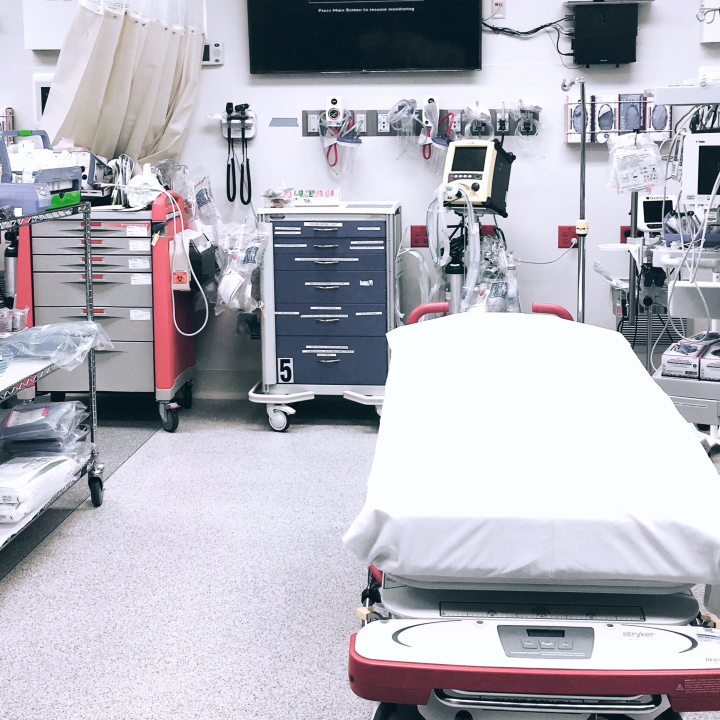
Emergency departments (ERs) are chaotic environments where nurses must balance helping multiple patients at once while juggling other responsibilities. To be successful in this role, you’ll need a combination of clinical and people skills, as well as the ability to think on your feet.
An ER nurse can be a challenging position for anyone but especially for people who have grown up thinking about something completely different. Many new ER nurses come from backgrounds such as nursing assistants, home health care aides or medical assistants.
As such, there is a bit of a learning curve when it comes to understanding exactly what being an ER nurse entails. There are also some misconceptions about what it means to be an ER nurse. Let’s take a look at some of those things:
The Biggest Misconception About Being an ER Nurse
There are a lot of misconceptions about what it means to be an ER nurse. Some of the most common ones are that it is a low-paying job and that you have to work nights and weekends a lot. While these may have applied to some ER nurses in the past, these days the pay is much better than most people think.
And, while there may be times when you work odd hours, these are usually not consistent, long-term hours. There is another misconception that you don’t get to do much hands-on patient care. This is simply not true. Most nurses in general, do not do a lot of hands-on patient care. We are more the ones taking orders from the doctors and the treatment team.
Why You Should Become an ER Nurse
There are a lot of reasons to become an ER nurse. The first one is the people. An ER is a place where there are a lot of people who are experiencing some of their worst days. So there is a lot of gratitude when you can help them. And there is also a lot of laughter. You will be able to get to know patients very quickly and you will be able to see the long-term impact of your work.
Another reason to become an ER nurse is that you will always have a job. There is always a need for ER nurses. While there are times when there is a shortage, it is not as bad as in some other fields. And there are times when there is too much of a supply.
However, you will always have a job as an ER nurse.
The Day-to-Day Life of an ER Nurse
The day-to-day life of an ER nurse depends on the organization you work for as well as what kind of nurse you are. Some nurses spend most of their day dealing with administrative tasks while others spend most of their time on their feet assisting patients with their care.
The average length of a shift will vary from place to place. Most organizations plan for more nurses than they need at a given time. This is so that they can take advantage of the times when there is less patient activity and give the nurses shorter shifts.
There is also the potential for overtime. This is especially true during times of higher patient volume.
Things to Know Before Becoming an ER Nurse
Before you decide to become an ER nurse, there are a few things that you should know. First, you need to realize that this is a very demanding job. You will be working long hours and you will be expected to be available for overtime. You must also be prepared to deal with extremely stressful situations. The ER is the first line of defense against disaster and it is where people go when they are in the worst shape possible.
So there will be times when you will be dealing with patients who are dying and others who have been in serious car accidents. In addition, you will be expected to deal with upset family members in the middle of the night. There are a few other things that you should keep in mind. First, you will be expected to have a lot of vaccinations and vaccinations.
Second, you need to be prepared to take continuing education classes to keep your certification valid.
The Bad Stuff About Being an ER Nurse
The bad stuff about being an ER nurse is that you will be expected to work long hours and you might have to work nights and weekends. There are times when you will be expected to work 12-hour shifts and get 36 hours off.
But there are times when you will be expected to work 12-hour shifts and get 48 hours off. This can be a challenge if you are supporting a family and you will need to plan your finances accordingly. There is also a risk of burnout.
This is especially true if you work in a very busy ER. One way to avoid this is to take breaks when you need them. You can also consider branching out and working in other areas of nursing.
Bottom Line
If you love working with people and in a fast-paced environment, then becoming an ER nurse may be the perfect career choice for you. The job will challenge you both mentally and physically.
And, as with most jobs, there are some downsides. But the rewards of helping people in their most vulnerable and challenging moments far outweigh the challenges. If you are interested in this type of nursing career, then read up on the requirements for becoming an ER nurse and look for open positions in your area.
